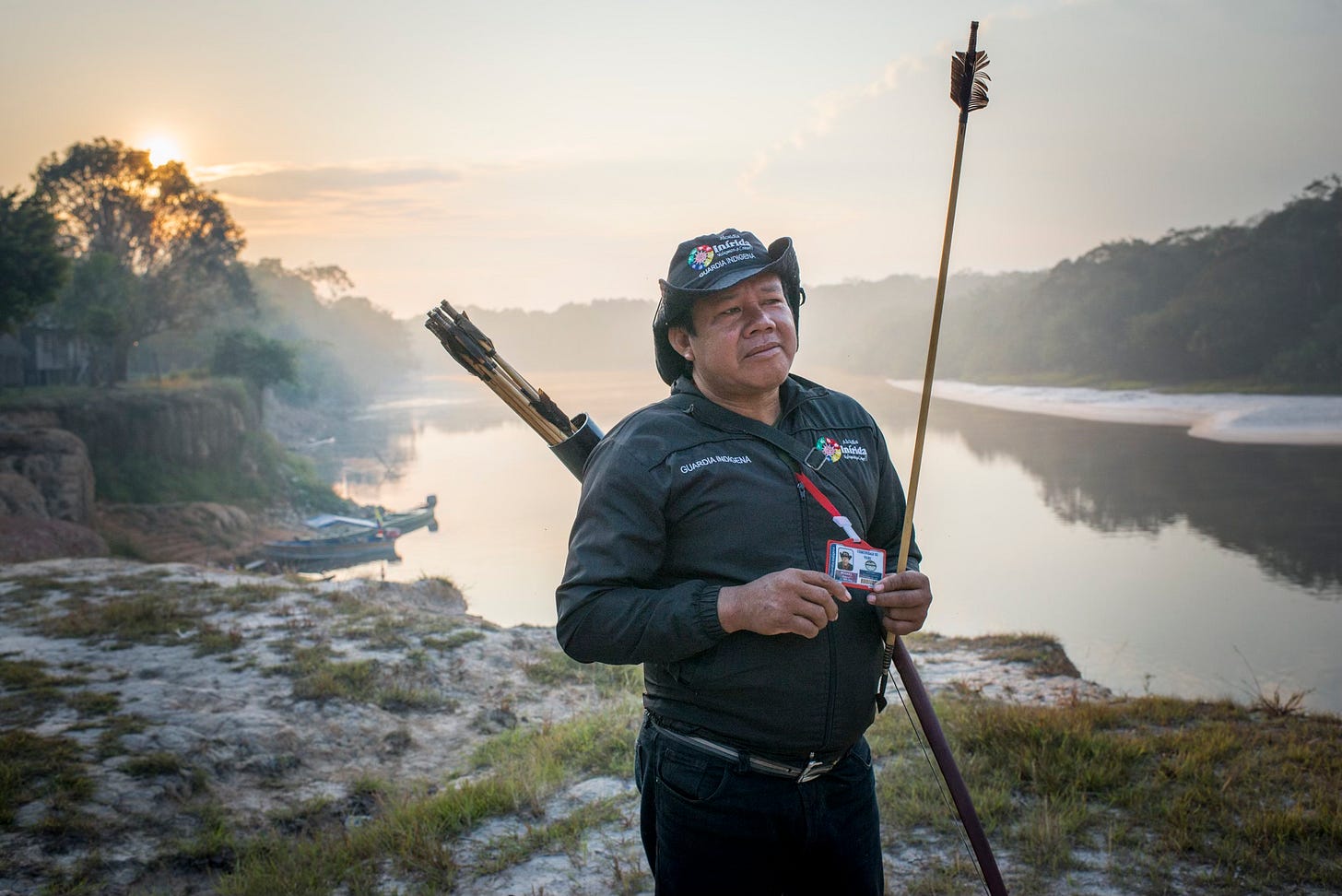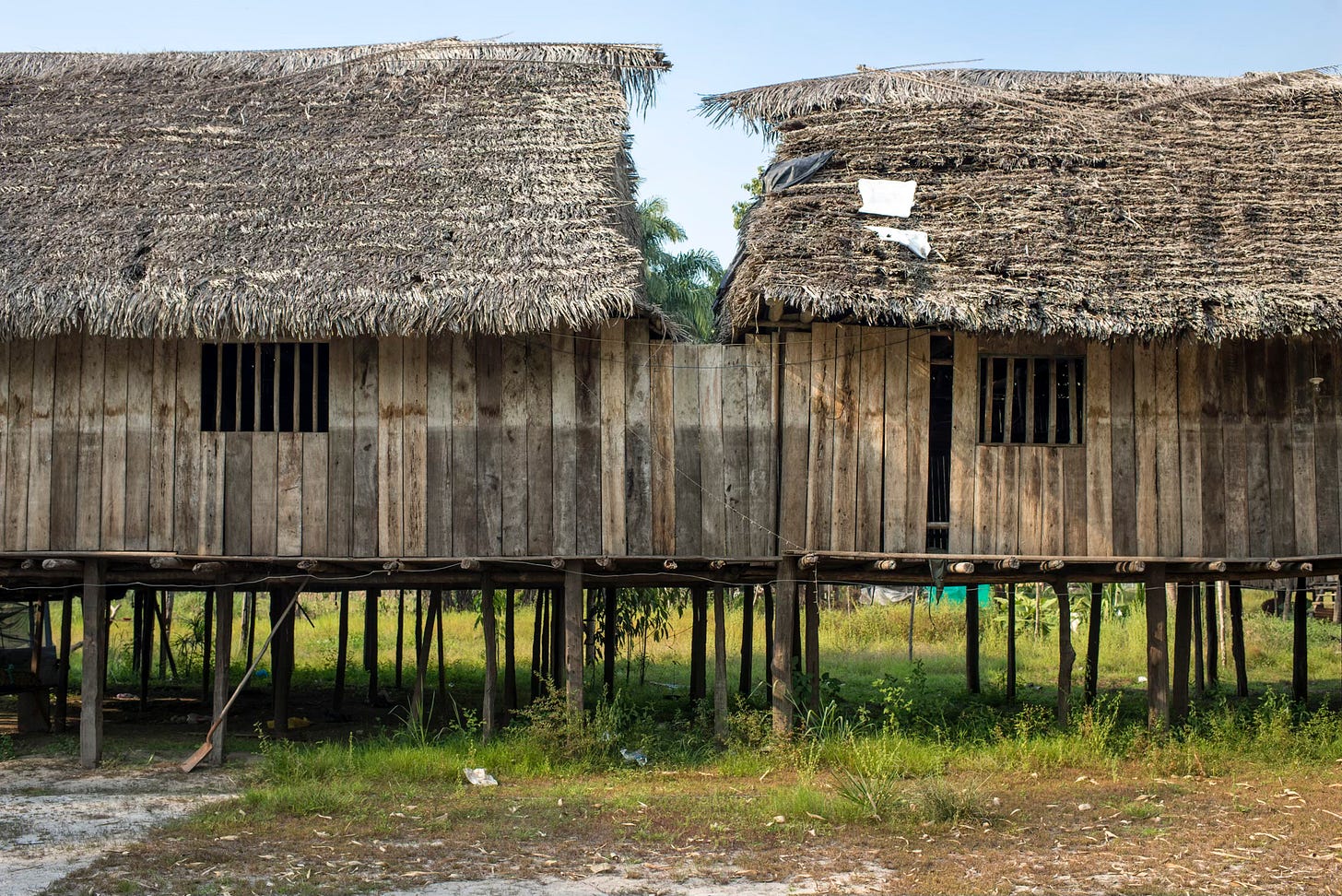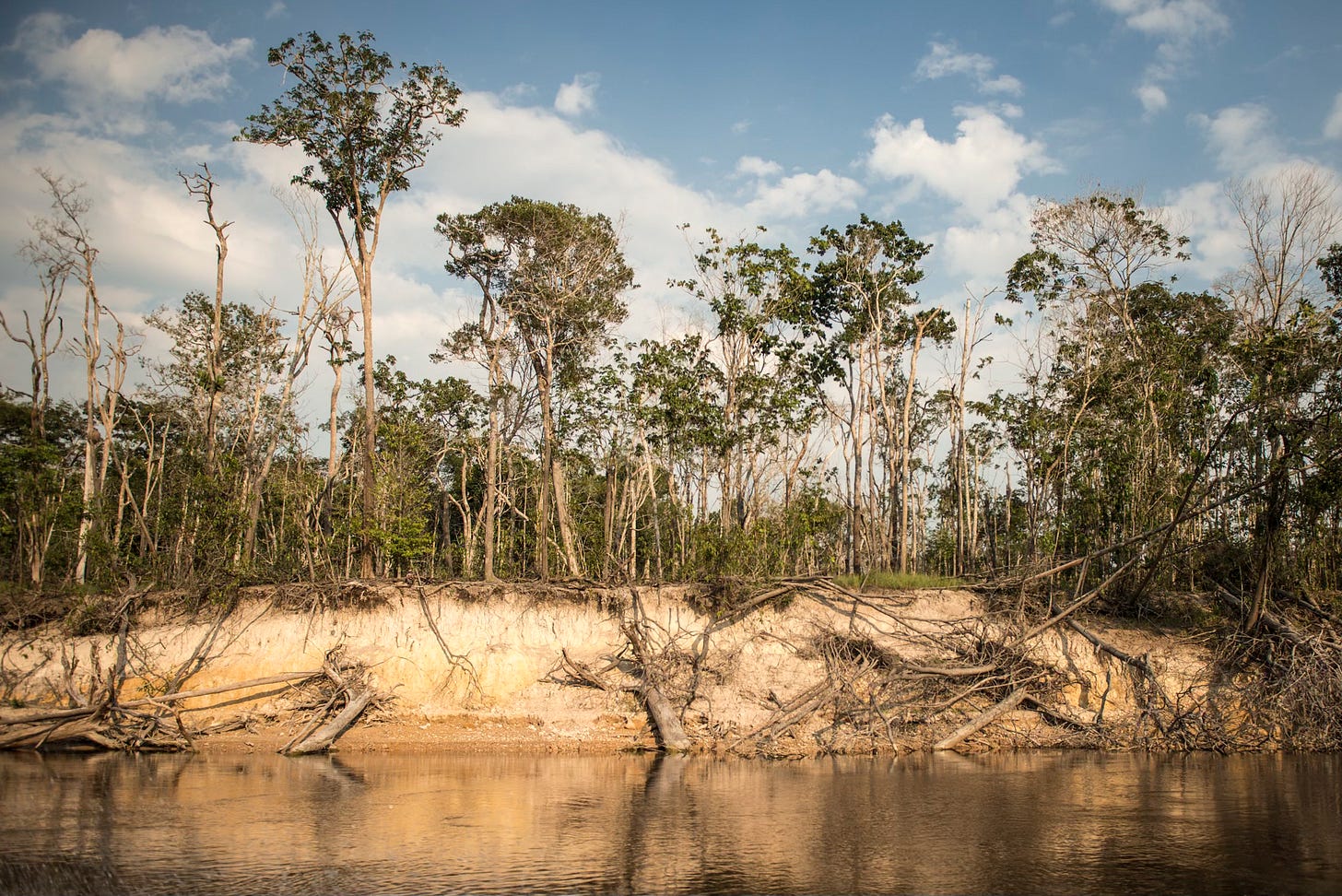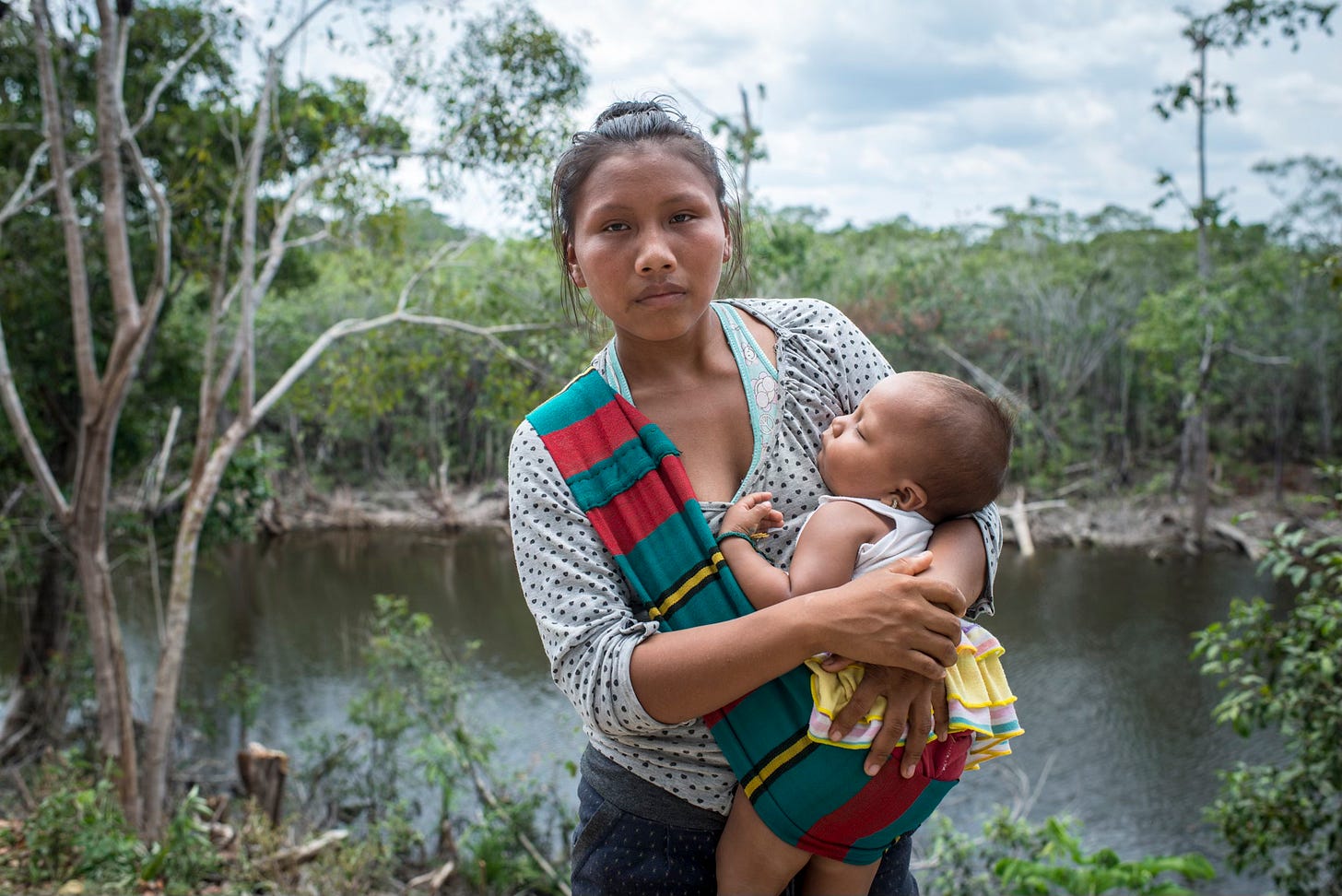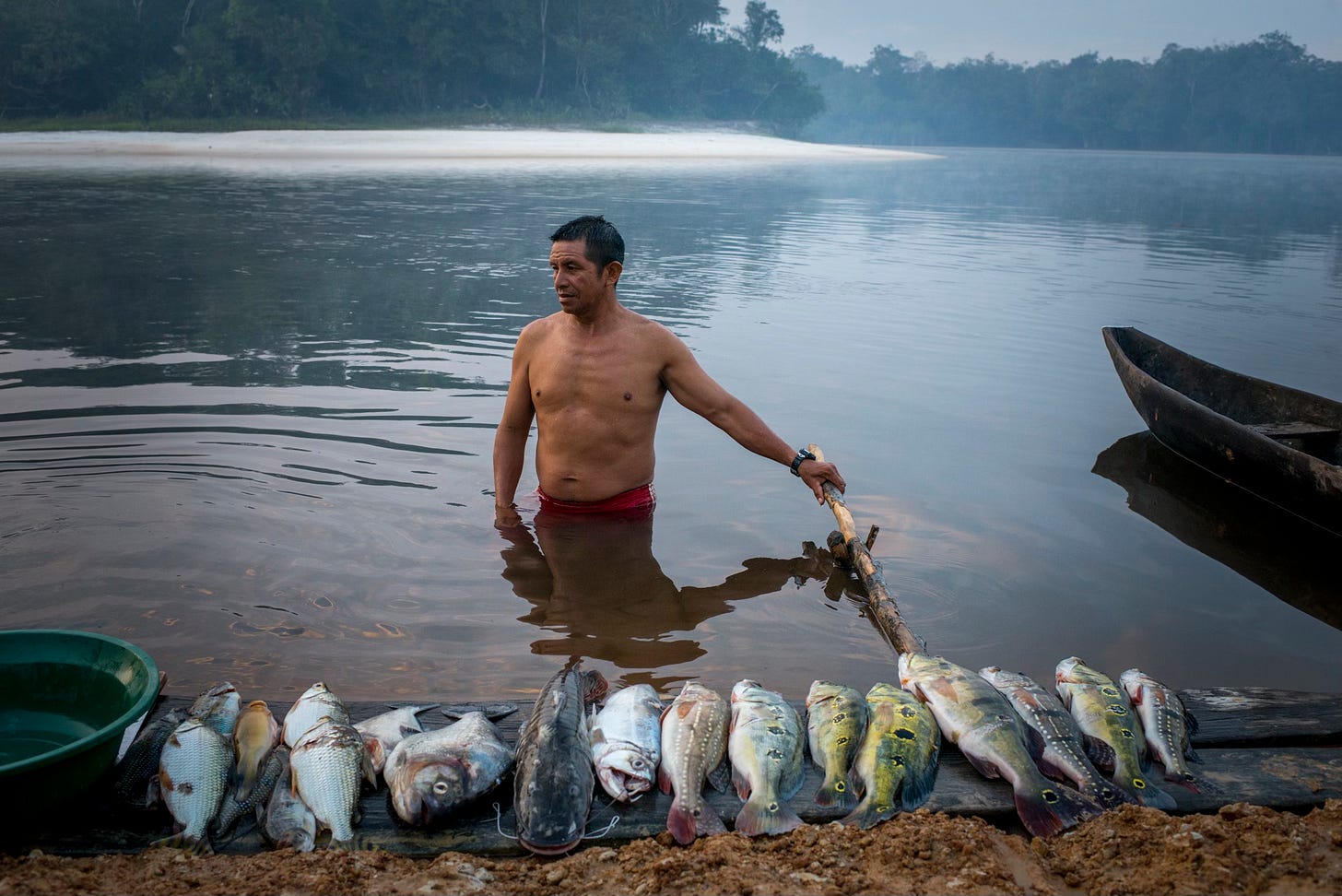The "SOME PEOPLE" Essays
Water is Life by Nadège Mazars | Edited by Kimberly J. Soenen April 23, 2025
(Yuri Community, Guainia department, Colombia - Feb. 27 2019: The marks on the wall of the two houses show the historic flooding levels. Similar to places around the world, the flooding has been record-breaking. Photos by Nadège Mazars.)
(Guainia department, Colombia - Feb. 26, 2019: Landscape on the Guamuco River. Between June and November 2018, the river experienced record high levels. The community was flooded for several months. The jungle and ecosystem suffered an ecological disaster due to the flooding. Photo by Nadège Mazars. )
Health is the state of complete physical, mental, and social well-being. Health depends directly on access to clean water. Water is a holistic element. It is well known that without water, there is no life. But water also becomes the destroyer of life when balance in nature is neglected or disturbed.
In February 2019, I visited an indigenous community of the Puinave people with a mission of the Colombian Red Cross. The people I met in this community live next to the Guamuco River, and similar to many regions in Colombia, the jungle surrounds the area. Located in a remote place of Colombia in the Orinoco region, the community is suffering from massive flooding. The scale of this flooding is new. For 40 years, flooding of this nature has not occurred. The changing health of the planet has contributed to this flooding.
In communities like this one, and in all of our communities globally, it’s not only necessary to have access to clean water, it is essential to maintain and protect healthy water to ensure Public Health. Clean water affects food supply chains, soil, drinking water, and our ability to prevent illness.
The Puinave people in Colombia need clean water to eat, to wash, to move, and to develop their system of beliefs and interaction with nature: water is life and health, at the center of their well-being. They respect water, they honor water, and they express gratitude for water. Yet, the overwhelming flooding has destroyed all of the community’s food stock and their culture.
(Laguna Niñal Community, Guainia department, Colombia - Feb. 28, 2019: Jaimy Natalia Diez Barreta (17) with her baby (1 year and 3 months). Jaimy came to receive medical care from the Colombian Red Cross. The village is located five hours away by motor boat from the town where it is possible to buy food, supplies, or to receive medical attention. In a row boat, the travel would require 15 days. Photo by Nadège Mazars.)
These conditions increase diseases like malaria and gastrointestinal affectations, but also impact the local economy negatively. The flooding and these illnesses make everything extremely expensive, because goods need to start coming in from outside of the region. The rivers there serve as roads in a landscape composed by dense jungle. Gas oil is extremely expensive and the inability for goods to make it through the jungle are isolating the community more and more. Medical and humanitarian attention has only been provided by the Red Cross. The confinement of the population makes the access to healthcare even more difficult, because the people cannot access the medical care.
(Yuri Community, Guainia department, Colombia - Feb. 27 2019: Two or three times a week, Don Francisco fishes at night with a harpoon and a flashlight. In one single night he caught 21 fish. After fishing, Francisco has to go to Puerto Iñirida to sell the fish. Since the flood that submerged his community between June-November 2018, the fish are the only resource the people have to rebuild and start again. Almost all the seeds and plants were destroyed. The money earned also allows him to purchase the gas for the boat to that allows him to travel to Puerto Iñirida, which is three hours away. Photo by Nadège Mazars.)
Should we call people who are concerned about public access to clean water “environmental activists?” Or should we begin instead equating clean water with good Public Health globally?
Whether it’s in the interior of Colombia, the city of Flint, Michigan, the wards of New Orleans, the homesteads along the Mississippi River, or the neighborhoods in Indonesia, Thailand, and Bangladesh...who is responsible for protecting clean water?
Who is responsible for protecting health...for protecting life?
ABOUT
Nadège Mazars is a documentary photographer. She had lived in Colombia since 2007. She focuses on providing an intimate approach to the effects of global issues such as Migration, Nature or War and Peace. She seeks to deconstruct and participate in changing the existing social representations and narratives. Mazars has received a Magnum Foundation grant and grants from the IWMF and the Pulitzer Center on Crisis Reporting. Her work has been exhibited at the Fotofestiwal in Lodz (2023), the Truth Commission in Colombia (2022), Transphotographiques in Lille (2021), Photoville in New York (2020), the Bibliothèque nationale de France in Paris (2020), the Framer Framed gallery in Amsterdam (2019), the ZOOM Festival in Saguenay (2016), and screened four times at Visa pour l'Image festival since 2016. Alongside her personal work, Nadège Mazars works regularly for the press and is a contributor to The Washington Post, Le Monde, The Guardian, Libération, among many others internationally. She earned a PhD in sociology from Paris III in 2013, about the construction of the territorial and political indigenous autonomy through their management of the Colombian healthcare system. Learn more about her work and follow her on Insta @nadege_mazars




